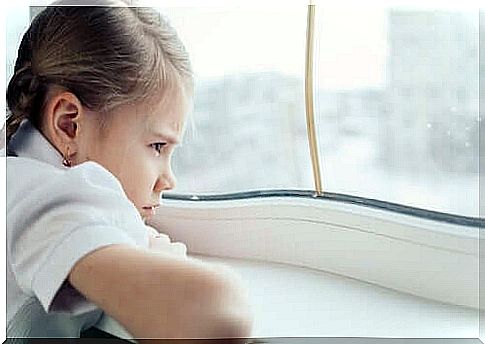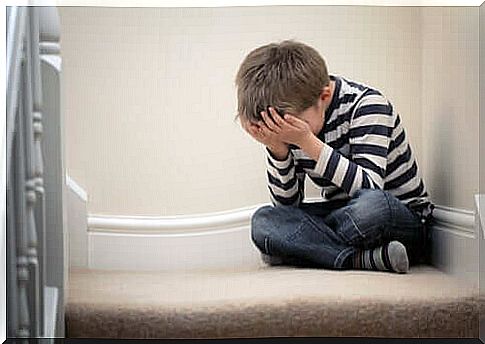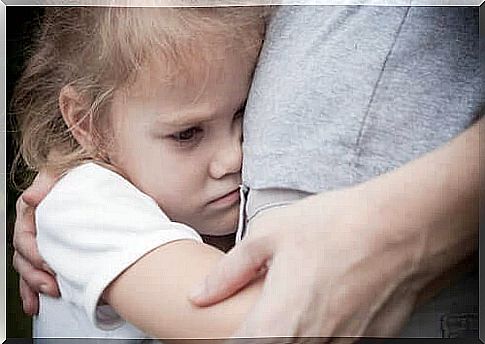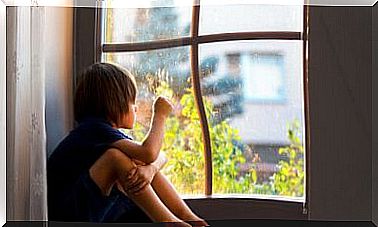School Phobia: When School Becomes A Problem

There is a fear that is really difficult for many children to deal with. The fear of going to school. This fear can become so stressful that it can be classified as a pure phobia, which is called school phobia.
Many people are afraid of the dark, others are afraid of certain animals and natural phenomena such as storms. This is not uncommon when you are a child, but compared to school fears, they can be easier to deal with.
Phobias are often described as an “evolutionary fear”. But what happens when you do not get rid of a phobia but it persists for so long and is so extreme that it actually disrupts your life?
Because education is such an important part of childhood and adolescence, school phobia can really have a limiting effect on their lives.
What exactly is school phobia?
School phobia is generally described as an irrational and excessive fear of school or certain school-related things. This can lead to many children having major problems going to school or staying there all day.
School phobia can be caused by:
- Rejection of classmates or teachers.
- Academic performance anxiety.
- Changing school often.
- Problems at home.
- Certain diseases and the symptoms that come with them.
All of these situations can lead to an anxiety episode along with motor, physiological and cognitive changes.

Cognitive symptoms
One of the most important symptoms of school phobia is school-related negative thoughts. A child may also begin to anticipate negative consequences (such as being scolded by the teacher) for no reason.
A child with school phobia will probably have a negative view of their school performance. In addition, they may become fixated on their fear of vomiting, fainting, or experiencing other physical symptoms in front of their classmates.
Motor symptoms
The main motor symptom is avoidance. To put it more clearly, a child with this phobia will struggle (verbally or physically) when it’s time to go to school.
They may say they are in pain or sick. They may not get out of bed, do not get dressed or do not eat breakfast and so on. They just do not want to do any routine to get ready for school.
Even if they go to school, they can cry, scream or hold on to their parents so that they do not have to go into the classroom.
Physiological symptoms
Some of the most common physiological symptoms are sweating, muscle tension, abdominal pain, diarrhea and dizziness.
School phobia in comparison with separation anxiety
If you want to know if your child has school phobia, you must first understand the difference between separation anxiety and this condition.
Separation anxiety is basically a child’s fear of being separated from the people they have a strong emotional bond with, usually their parents.
It can happen at any time, for example when they go to school, go on an excursion or even just before they go to sleep over with a friend.
Therefore, you need to find out exactly why your child does not want to go to school. If its fear is based on separation anxiety, it probably does not suffer from school phobia.

How to overcome school phobia
There are several techniques and methods to help a child overcome this phobia. According to many studies, the most effective are based on cognitive behavioral therapy.
This form of therapy is based on methods of changing your thoughts, leading to behavior change and vice versa.
The most common methods are:
- Systematic desensitization. Can be especially useful if your child is trying to avoid going to school. Systematic desensitization works by gradually exposing your child to its fears. The goal is to slowly reduce the child’s anxiety so that they can see that nothing dangerous will happen.
- Training in social skills. Part of a child’s fear may be related to being rejected by classmates. If so, you can help your child learn social skills so that it is better equipped to build relationships with the other children in school.
- Cognitive restructuring. Restructuring involves changing the child’s irrational or exaggerated beliefs. By doing so, it will help to change the negative view it has at school or turn it into a more and positive realistic view.
- Relaxation training. Learning to use relaxation techniques can help a child control anxiety-related physiological symptoms.
Use of medication for school phobia
The main goal of treating school phobia is for your child to stop feeling anxiety, fear or other discomfort.
Although doctors prescribe medication (mostly antidepressants) in some cases, you should carefully weigh the pros and cons against each other before taking that route.
Some studies suggest that the side effects of these drugs do not justify their use, as some therapies have been shown to be effective.
Therapy is generally the best, most effective option, and certainly the one with the most potentially long-lasting results.









